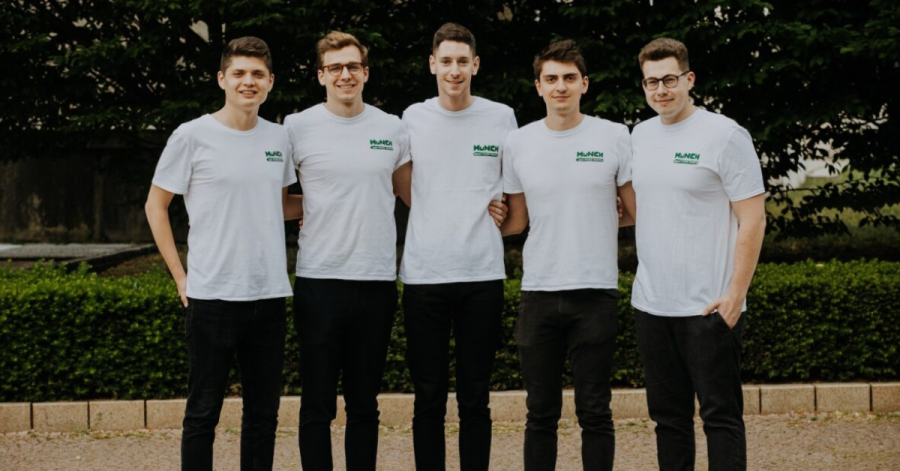Only have 1 minute? Here are 3 key takeaways:
- The Hungarian startup Munch fights food waste by connecting customers with unsold meals.
- The startup is eyeing expansion in Romania and other CEE countries.
- Munch has recently closed a Series A round led by Piton Capital and joined by FJ Labs, Christopher Muhr, Kai Hansen, and existing investors including Fiedler Capital.
Founded in 2020 by four student entrepreneurs, Munch is a dynamic platform where restaurants, bakeries, grocery stores, and hotels sell their unsold, but good quality food at a discounted price.
Merging their experiences Botond Zsoldos, Bence Zwecker, Albert Wettstein, and Kirill Perepelica created the solution that today works in Hungary, the Czech Republic, and Slovakia.
With a team of 80, Munch merged in 2022 with Czech-based app Nesnězeno (co-founded by Jakub Henni) and together they now boast over 3,000 partners and more than 1.5M app downloads across 211 cities. Their partner list includes Starbucks, PENNY, SPAR, and INTERSPAR.
To expand their presence and partnership base, the startup has recently closed a Series A (amount undisclosed – ed.note) led by Piton Capital and joined by FJ Labs, Christopher Muhr, co-founder of Groupon, and Kai Hansen, co-founder of Lieferando, a leading European delivery startup. Existing investors Fiedler Capital, Silicon Gardens, Márton Szőke, Péter Záborszky, STRT Holding and László Czirják also participated in the round.
“The involvement of top-tier global marketplace investors like Piton Capital and FJ Labs, known for backing giants like Alibaba and Delivery Hero, is a testament to Munch’s potential. Having the best possible investors for our vision and mission is not just a validation; it’s a powerful alliance to drive our sustainable mission globally”, says Bence Zwecker, CEO of Munch.
“We rarely get excited about hyperlocal marketplaces in Central and Eastern Europe, but when we met Munch last year, there was something magical about the team. They’re passionate, data-driven and their execution is remarkable. As for the opportunity, there’s competition, but we believe this is a much deeper market than people initially think and there’s a lot of white space to expand to”, adds Robert Hegedüs, founding partner at Fiedler Capital.
The startup is now set to open new markets, targeting Romania next, where approximately 1.4M tons of food are wasted annually. The move represents a strategic step for Munch, but also offers the opportunity to make a meaningful impact on food waste in the CEE region.
“This funding enables us to establish a strong presence in Romania, starting with Bucharest, and further expand our reach across CEE and SEE. Countries like Croatia, Slovenia, Greece, Bulgaria, and Serbia are next on our list. We are looking for passionate individuals who want to make a real impact to join us in our mission to combat food waste”, emphasized Zwecker.
In light of entering new markets with existing food-saving startups, Munch considers that they differentiate themselves through various factors, including international experience, nationwide rollout expertise, strong financial backing, community engagement, proven market entry success, an experienced team, and improved technology.
In Romania and Bulgaria two startups are offering similar solutions – Bonapp.eco and FoodObox.
To solve the food waste problem along the entire supply chain, the team is launching Munch Market, a marketplace that enables wholesalers to sell near-expiry or out-of-season products at discounted prices. The marketplace is now available in Hungary, but the goal is to launch it in every Munch country.








